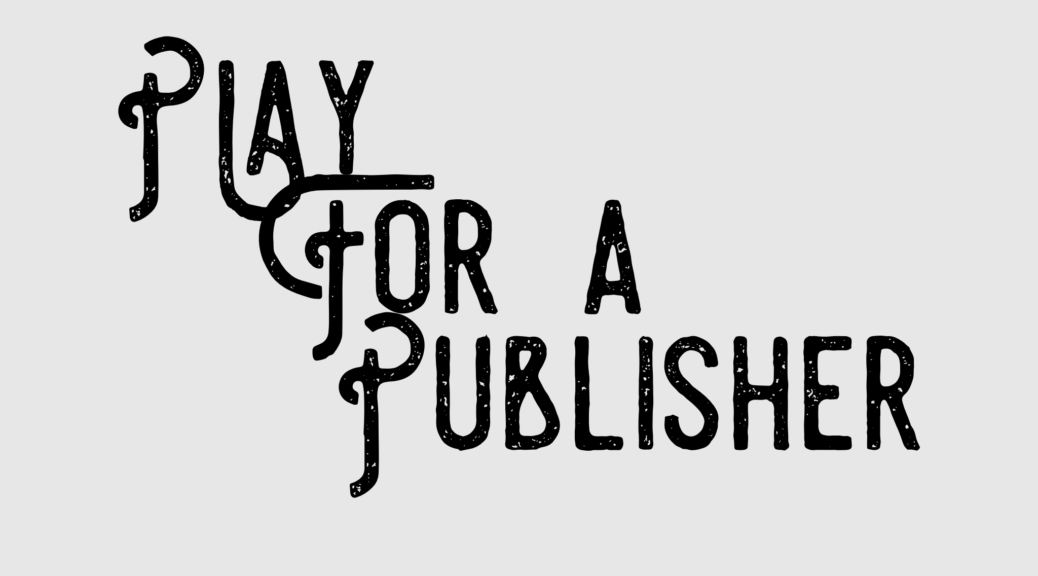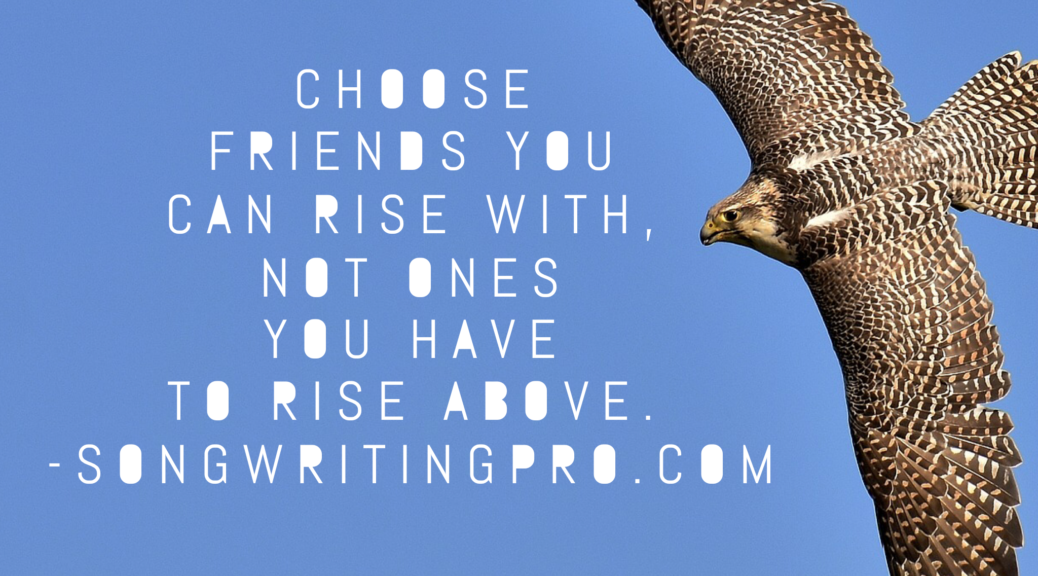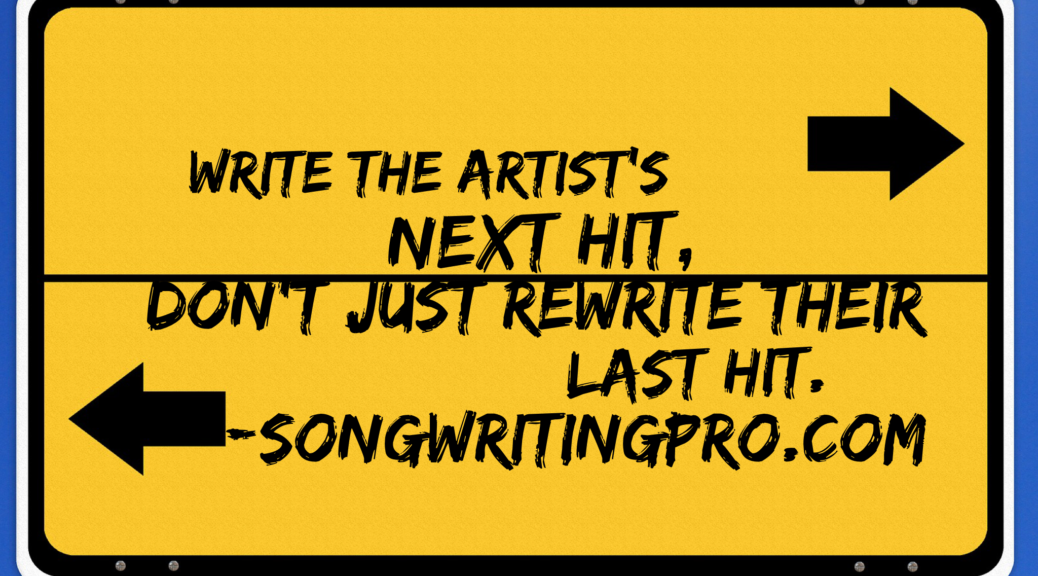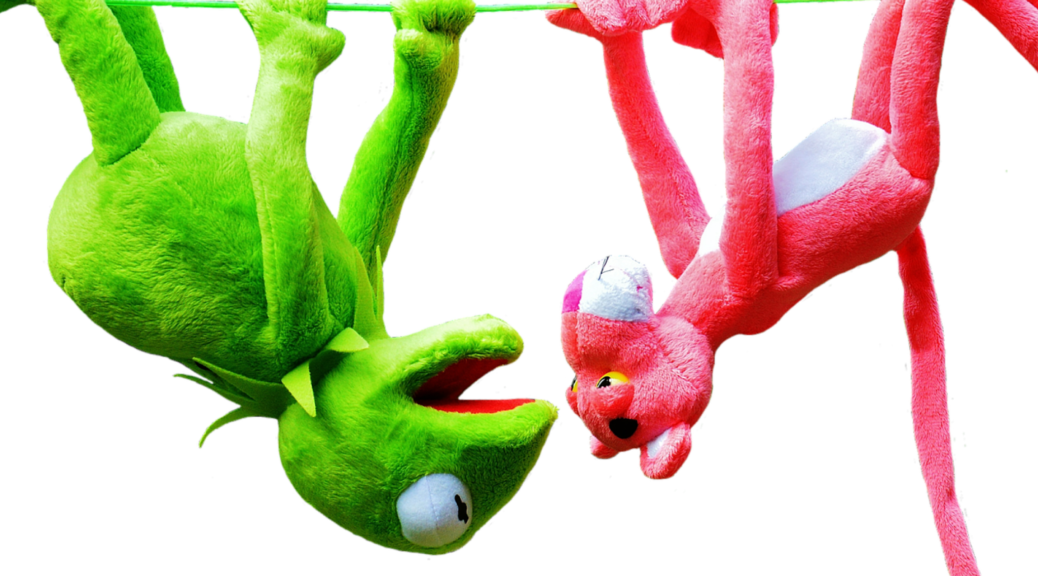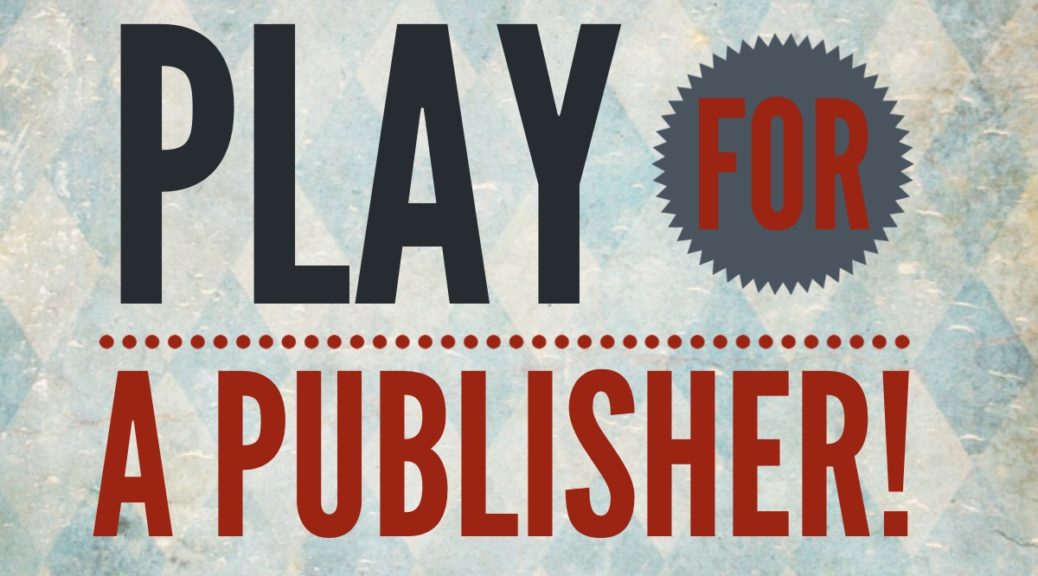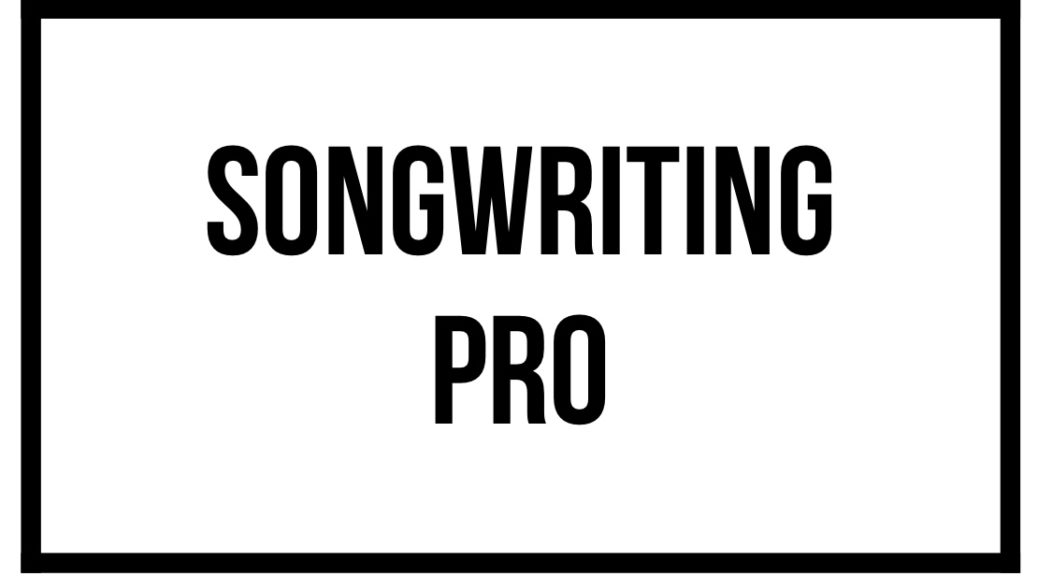
You can’t have major success alone. You MUST have help. Songwriting is a team sport. Today, let’s talk about who you might need on YOUR team.
Ready to start building your team – or to add the missing pieces? Read on!
________________________________

To BE a pro, you need to THINK like a pro, and this FREE ebook will help transform your thinking, your songwriting, and your success. Get it today!
Click Here For The Book
_________________________________
Okay, let me start off by saying that not all of these members are necessary for every songwriter at every career stage. Some are only needed when money is being generated from your songs. So don’t get overwhelmed- you don’t have to find all these folks today.
Also, this list is for pro songwriters or those who want to make money. If you just want to write good songs and you’re not worried about big commercial success, pick and choose accordingly.
1. Your Cowriters.
There are very, very few songwriters who turn pro (and stay that way) who are exclusively solo writers. Your cowriters help keep you fresh and break you out of creative ruts and stale habits. They also provide song ideas so you don’t have to come up with all your own ideas.
Cowriters provide creative strengths to compliment your weaknesses (lyrics for your melodies, etc.) They share valuable information (who’s cutting, what they want, who’s about to get a record deal, etc.). They (and their publishers) help pitch your songs. Cowriting also provides political advantages- writing with the artist, the producer, or with someone in a powerful publishing company.

2. Your PRO.
Performing Rights Organizations (PROs) are basically companies who collect and distribute airplay royalties for publishers and songwriters. There are three PROs in the United States- ASCAP, BMI and SESAC. Every other country / territory has only one.
If you’re blessed to get some airplay, you and your song won’t get a dime of airplay money if you and your song aren’t registered with a PRO. That’s the big service they offer. Other benefits include networking and educational opportunities. EVERY money-making pro must have a PRO.

3. Your Recorders.
All the cowriters in the world aren’t gonna do you much good if all your demos / recordings sound terrible. There’s just too much competition and too many quality demos out there for an A&R person to do the work to hear through a bad recording. They just don’t have to. Unless you’re an established hit songwriter with a good track record, they’ll just trash it and move on to a recording that sounds like it was done by a pro.
It’s great if you have the musician and production chops to get good sound on your own. But most songwriters don’t have that, so it needs to be outsourced. Maybe your cowriters can perform this function, or maybe you hire a track guy (or girl) or some studio musicians.
With that being said, a good publisher should be able to hear a good song that isn’t fully demoed. This point is for pitching your song to artists and record labels, not to publishers (who we’ll get to in a moment).

4. Your Administrator.
Somebody better be watching the money. Your administrators are the folks that make sure your songs are registered with a PRO, licensed properly by the record labels, the copyright forms are sent in and that your royalties make it (properly and promptly) from the record labels to the songwriters.
This function is usually done by the publisher, but you can also hire an admin firm for a percentage of what they collect on your behalf. For example, my Major Bob Music catalog is partly administered in-house and partly by The Harry Fox Agency. My personal publishing company, Cowboy Chords Music, outsources my admin to Bluewater Music. They handle my licensing and royalty collections for a percentage of the money they collect.

5. Your Sharpeners.
These are the folks who help you sharpen your skills, both on the artistic and business sides of songwriting. This may include cowriters who inspire and challenge you to do your best, it may include NSAI, Global Songwriters Connection, Songwriting Pro, Frettie, song evaluators, and coaches. It may be your publisher or songplugger. It may be a writer’s rep at a PRO or a publisher who will listen to your songs and give feedback.
The Sharpeners are hugely important for amateurs turning pro and for seasoned pros trying to keep current and to adapt as the commercial market changes. These are the folks who will tell you the truth and challenge you, even when it’s unpleasant.
6. Your Believers.
Who’s going to pick you up when the biz knocks you down? When you’re lost in doubt? You’ll find The Believers in several of the other categories- Cowriters, Publisher, and sometimes the PROS and Sharpeners.
Your Believers may also include folks outside of music- your family and friends. This isn’t just for the aspiring songwriter. We ALL need Believers! But the most important believer will always be one person. Yourself.

7. Your Songpluggers.
If you want cuts, somebody has to be out there actively pitching your songs and getting them heard by folks who can say “yes.” Oftentimes, this is done by a music publisher, who has at least one songplugger on staff. Many pros also pitch their songs themselves. I’m an “all hands on deck” kinda guy, so I like to have cowriters to pitch our songs, too.
People who might plug your songs: you, your publisher, an independent songplugger, your cowriters, your cowriters’ songpluggers. If nobody is plugging your songs, nobody will hear them. If nobody hears your songs, nobody will cut them.

There ya go. A pro songwriter’s team. Like I said earlier, you may not need all these folks right now, depending on where you are in your career. But as you climb that mountain, you’ll add more and more of them.
But what if you don’t have your team put together yet? What if you don’t know any publishers? Let me help.
I’m happy to give you a shot at meeting a legit hit music publisher! I want YOU to join me at Songwriting Pro’s next Play For A Publisher event- and get feedback on YOUR song in person! (No matter where in the world you live.)
If you’re ready to connect with a publisher, I have a path for YOU and YOUR great song to get to a real, legit, successful music publisher, no matter where in the world you live (because it’s all online).
On Thursday, December 14, I’m having the next round of Songwriting Pro’s “Play For A Publisher.” Our guest is John Ozier of ole Music, but the deadline to submit your song is TODAY! That’s right- if you don’t reserve your spot and get your song in TODAY, John won’t hear your song.
DON’T MISS OUT- CLICK HERE TO TAKE ADVANTAGE THIS GREAT OPPORTUNITY!
MEET MUSIC PUBLISHER JOHN OZIER
Ozier’s track record includes placing songs recorded by Garth Brooks, Tim McGraw, Florida Georgia Line, Lee Brice, Randy Houser, Rodney Atkins, Clay Walker, Love & Theft, Ronnie Dunn, Jo Dee Messina, and many more. In 2010, Ozier was responsible for four songs in the Top 15 on the Billboard country charts, including the longest-ever running single, Lee Brice’s “Love Like Crazy,” at 56 weeks. More recently, he was responsible for No. 1s by Rodney Atkins (“Take A Back Road”) and Lee Brice (“A Woman Like You” and “I Drive Your Truck”).
He is also a published songwriter with cuts by Lee Brice, Kelli Pickler, Charlie Worsham, Josh Thompson, Tyler Farr, American Young, Air Supply and others. He co-wrote Lee Brice’s multi-week No. 1 and platinum single, “Hard to Love,” which won a BMI Award in 2013, as well as an NSAI Award for ‘Top 10 Songs I Wish I’d Written.’ Ozier also co-wrote Tyler Farr’s 34-week #1 and Gold Single, “Whiskey In My Water.”
DON’T MISS OUT- CLICK HERE TO TAKE ADVANTAGE THIS GREAT OPPORTUNITY!

God Bless and Enjoy the Journey,
Brent Brent Baxter is a hit songwriter with cuts by Alan Jackson, Randy Travis, Lady Antebellum, Joe Nichols, Gord Bamford, Ruthie Collins, Ray Stevens, and more. He’s written a top 5 hit in the US and a #1 in Canada… so far.



